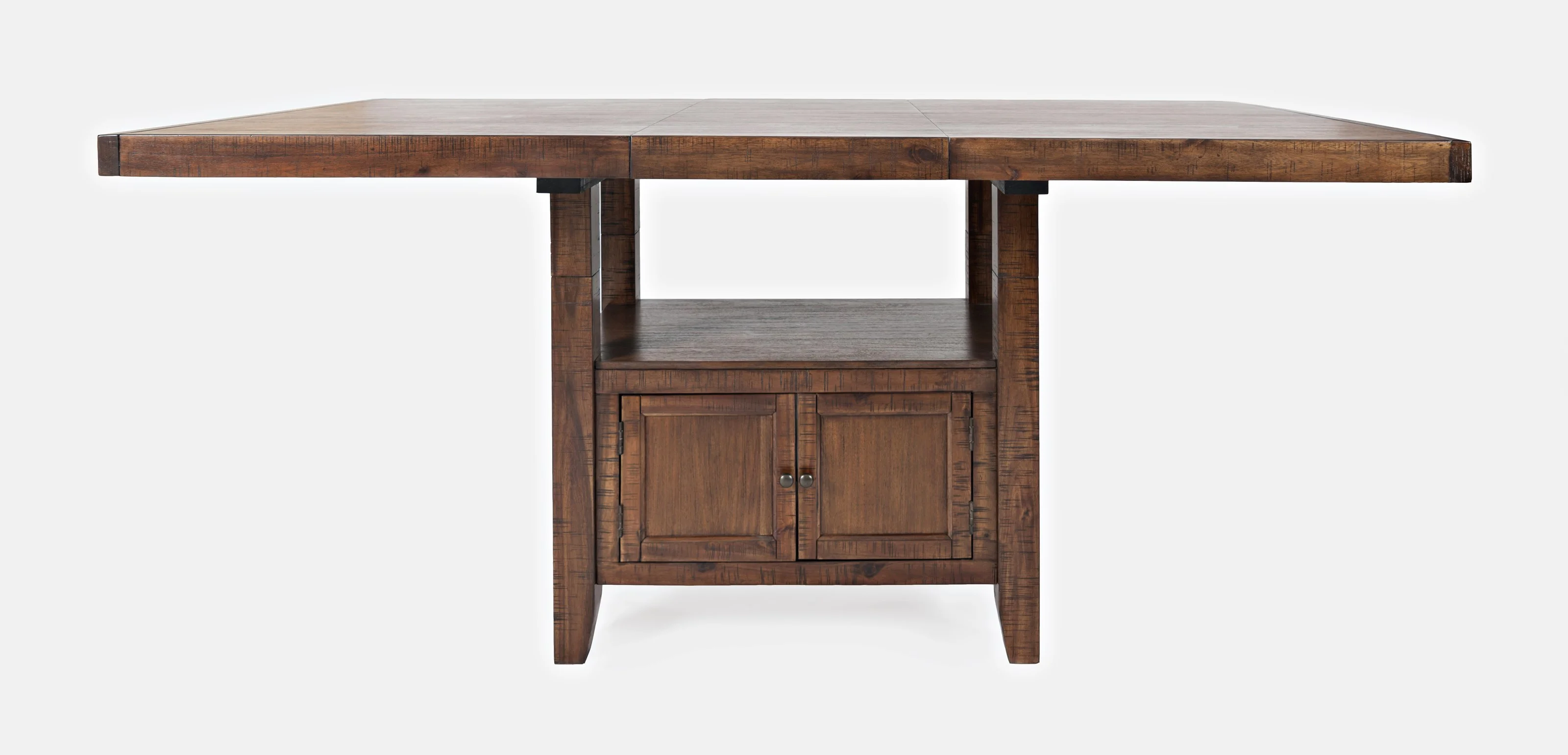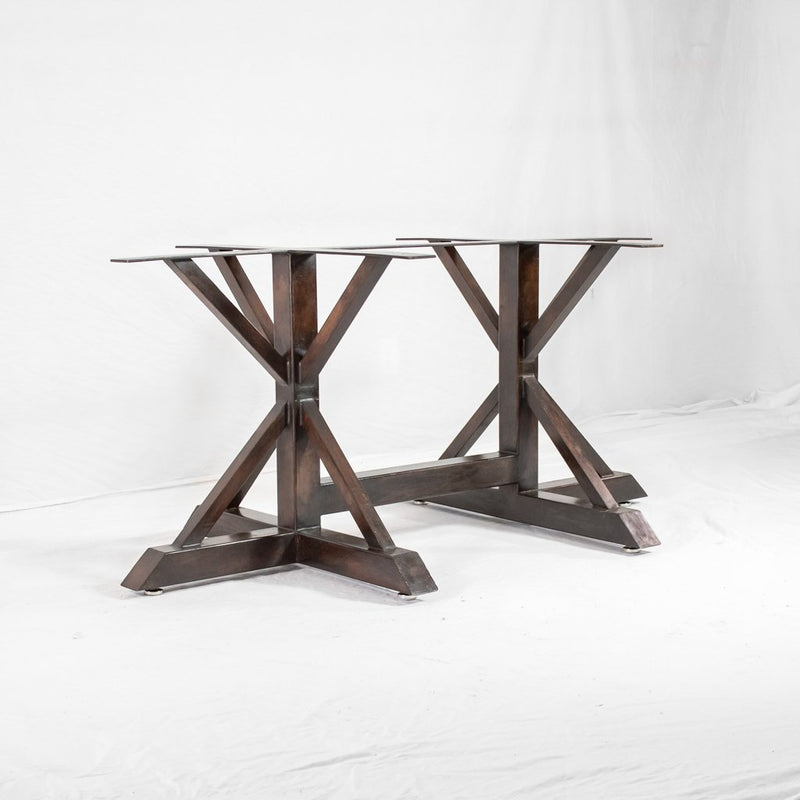Upgrade Your Furniture with Custom Dining Room Table Legs
Upgrade Your Furniture with Custom Dining Room Table Legs
Blog Article
Exactly How to Select the Perfect Dining-room Table Legs for Your Home Decor
Selecting the optimal eating room table legs is a nuanced procedure that calls for mindful consideration of numerous components, including your space constraints, aesthetic choices, and useful requirements. The interplay between designs, products, and dimensions can dramatically affect the ambiance of your dining area, making it important to approach this decision carefully.
Assess Your Eating Space
Analyzing your dining area is critical for picking the right table legs that complement both aesthetics and functionality. Begin by measuring the dimensions of your dining location, including ceiling height, floor area, and distance to other furnishings. This information will help identify the proper dimension and elevation of your dining table, which straight affects the option of table legs.
Following, think about the design and design of your eating area. For circumstances, an open-concept design might gain from table legs that offer visual agility, such as slender steel or acrylic alternatives. Alternatively, a more standard setting could call for sturdy wooden legs that offer a feeling of durability.
Evaluate the existing shade combination and materials in your eating area. Balancing the table legs with these components develops a cohesive appearance that enhances the overall design. In addition, consider the capability required in your space. As an example, if you regularly hold large celebrations, think about legs that provide additional assistance and stability.
Ultimately, a thorough analysis of your eating area will assist you in making an educated choice, ensuring that your table legs not only enhance the aesthetic allure however likewise serve practical objectives.
Consider Your Design Preferences
When selecting eating area table legs, it is vital to assess your individual style preferences, as they significantly influence the overall visual of your eating space. Your choice of table legs can either complement or comparison with existing decoration, making it essential to straighten them with your recommended interior decoration motif.
If your home leans in the direction of a modern-day aesthetic, consider smooth steel or minimalist wooden legs that provide a clean, uncluttered look. For an extra conventional technique, luxuriant wood legs with intricate carvings can add a touch of sophistication and class. Industrial styles profit from robust, raw materials such as recovered wood and metal combinations, mirroring a sturdy appeal.
In addition, farmhouse and rustic designs often prefer sturdy, beefy legs that evoke a feeling of heat and comfort. On the other hand, if your decor is diverse, you could pick non-traditional shapes or a mix of materials to develop aesthetic rate of interest.

Evaluate Material Options
The selection of product for eating room table legs plays a crucial duty in both longevity and visual appeal. Common products consist of wood, metal, and composite choices, each offering distinctive attributes that can affect the overall look and durability of your table.
Wood is a timeless option, known for its heat and adaptability. Hardwoods like oak and walnut offer remarkable stamina and can be completed in different stains to match any kind of style. Softwoods like ache are much more prone to dents and scratches, making them much less ideal for high-traffic areas.
Metal legs, commonly crafted from steel or light weight aluminum, exhibit modernity and industrial charm. They are extremely sturdy and immune to wear, making them ideal his response for households with youngsters or regular gatherings (dining room table legs). In addition, steel can be finished in numerous colors, enhancing the customization possibilities
Composite materials, such as MDF or laminate, deal affordability and varied designs. While commonly much less resilient than solid wood or metal, they can still give a trendy look and are frequently very easy to preserve.
Ultimately, the product you choose need to line up with your way of life, visual preferences, and the degree of usage your table will certainly experience.
Determine Height and Size
Selecting the suitable height and dimension for your dining-room table is crucial for both functionality and comfort. The standard elevation for eating tables typically varies from 28 to 30 inches, allowing sufficient legroom for a lot of people when seated. It is crucial to consider the measurements of your dining area and the kinds of chairs you plan to utilize.

Moreover, consider the percentages of your dining area. A larger table in a roomy area can create a grand ambiance, while a smaller table functions well in even more intimate settings. Inevitably, the right elevation and dimension will integrate with read this article your general decoration and boost the dining experience for you and your guests.
Explore Modification Possibilities

Furthermore, the style of the legs can be customized to fit different styles, such as rustic, modern, or industrial. Tapered legs can evoke a mid-century modern feeling, while chunky, block-style legs might reverberate with traditional or farmhouse design.
House owners can also explore shade finishes, from all-natural timber discolorations to paint, allowing them to match or contrast with the table top and bordering decoration.
Additionally, leg height can be readjusted to fit certain seating plans or personal choices, boosting both comfort and capability.
Last but not least, distinct decorations, such as makings or decorative braces, can further personalize the table legs, making the eating experience not just a dish yet a declaration piece in the home. By considering these personalization options, property owners can produce a dining room table that absolutely shows their uniqueness.
Conclusion
Selecting the suitable eating room table legs calls for cautious factor to consider of different variables, pop over to this web-site consisting of the measurements of the eating space, style choices, material longevity, and desired height. Customization choices additionally improve the capacity to attain a cohesive visual that matches the total style. By methodically reviewing these components, home owners can ensure that the chosen table legs not just meet practical demands yet also add positively to the eating experience and ambiance of the home.
Selecting the ideal eating area table legs is a nuanced process that needs mindful factor to consider of numerous elements, including your area constraints, aesthetic choices, and useful needs.Assessing your eating space is vital for choosing the right table legs that enhance both looks and performance.When figuring out size, determine the location where the table will be positioned to ensure it fits conveniently, allowing for at least 36 inches of clearance around the table for very easy motion. A larger table in a spacious area can produce a grand setting, while a smaller table functions well in even more intimate setups.Choosing the suitable eating space table legs calls for mindful consideration of numerous variables, including the dimensions of the dining area, design preferences, product longevity, and preferred height.
Report this page